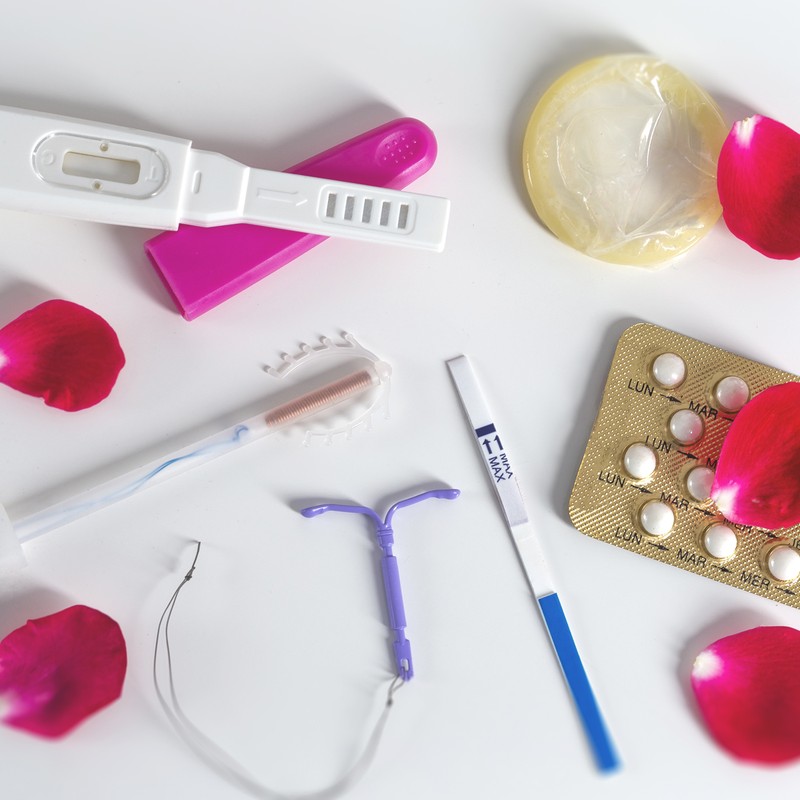The Mirena Coil: Everything You Need To Know From A GP
MYTH: It’s Not As Effective As The Pill
TRUTH: It’s As Effective, If Not More Due To Its Permanency
It’s over 99% effective at preventing pregnancy. The other bonus is it sits there for up to five years before it needs to be changed, so you never run the risk of forgetting it, like you do with the pill. It’s ideal for women who know they want on-going, convenient and reliable contraception for several years. How it works is down to the progesterone hormone it releases, which makes the womb lining thinner, meaning that if an egg is fertilised, it can’t attach to the wall of the womb and develop. It also makes it more difficult for sperm to get to any eggs by making the mucus lining at the cervix thicker. In some cases, it can also stop an egg being released from the ovary (ovulation), but most women will still ovulate.
MYTH: It Affects Pregnancy
TRUTH: Your Fertility Remains The Same
You can still use the Mirena, even if you’re planning to get pregnant in the foreseeable future. It can be removed at any time you choose, and it won’t affect you at all, in fact, your fertility will return to normal almost instantly.
MYTH: It Messes Up Your Hormones
TRUTH: It Has Minimum Impact On Your Hormones
Since it only releases a small amount of hormone into the womb, in most women it will not have a significant effect at all, nor will it have a major impact on your mood. Like with any treatments, you can expect some side effects still as a small amount can get into the bloodstream. These include acne, headaches, nausea and breast tenderness, but these symptoms are usually said to fade after three months of it being put in.
MYTH: It Stays Put For Five Years
TRUTH: There Is (Small) Chance It Can Fall Out
But it’s worth noting, this is very rare. If it has fallen out, don’t try to fix it yourself. Book in with your doctor or nurse so they can properly examine you, and it goes without saying you should use another form of contraception in the meantime, notably condoms so you don’t have to start up a whole new set of tablets. You can also check for yourself if it’s fallen out by seeing if you can feel the threads of the Mirena inside your vagina, but do not pull them. You’ll be shown how to find the threads when it’s fitted, so don’t panic.
MYTH: Your Periods Will Be Really Heavy
TRUTH: You May Not Have A Period At All
Since the Mirena thins the lining of the womb, most women will find that their periods are a lot lighter, with some not having one at all. This is why it can be helpful for women who experience very heavy bleeding with their periods, doctors will often recommend it as a form of treatment.
MYTH: Placement Is Painful
TRUTH: It’s Uncomfortable, But Should Never Be Painful
At the time of placement, yes, you can expect discomfort, but once fitted, you won’t even notice it’s there. Treat it like a regular smear test, it’s the exact same type of procedure, and remember the device is very small and inoffensive. Don’t be alarmed if you experience cramping, period-like pains after insertion, this is completely normal and is almost a sign of it doing its job correctly.
MYTH: Everyone Can Use The Coil
TRUTH: There Are Certain Situations You May Not Be Eligible
In some cases, you may have to have more of a discussion with your doctor before you have it inserted. Firstly, if you’re already pregnant, or have had a baby within the last four weeks, you’ll need to wait before getting it fitted. It’s often not suitable if you have or have had breast cancer either, or any problems with your womb or cervix. Likewise, symptoms of an STI or unexpected bleeding will need to be thoroughly tested and checked before you opt for the Mirena. As with any health consideration, always chat it through with your doctor first as they’re best placed to assess your options and medical history.
MYTH: The Mirena Protects You From STI’s
TRUTH: You’re Actually More At Risk
It will definitely not protect you from getting sexually transmitted infections, you actually have a higher chance of these infections due to many people no longer using condoms with an IUD. Have regular check-ups and still use condoms where you can. It’s also worth noting that it’s not uncommon to get a general infection shortly after having your Mirena fitted. The signs of this would be a change in discharge, pain or unexpected bleeding. Don’t ignore these if they persist and seek out help from your doctor.
Experts at Zava are urging women to come forward with contraception questions; the online platform offers fast, reliable access to qualified doctors who can provide expert, tailored advice about contraception choices. You can also find out more at NHS.uk
DISCLAIMER: We endeavour to always credit the correct original source of every image we use. If you think a credit may be incorrect, please contact us at info@sheerluxe.com.


